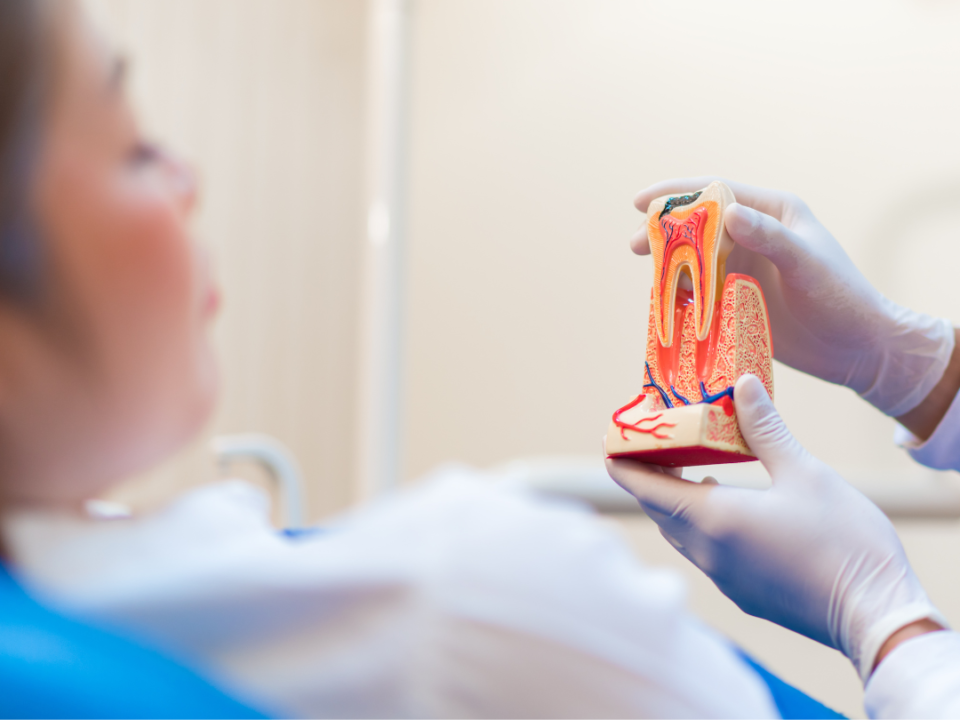
Can You Get a Root Canal While Pregnant?
October 23, 2021
Do I Need a Referral to See an Endodontist?
January 25, 2022
Can You Get a Root Canal While Pregnant?
October 23, 2021
Do I Need a Referral to See an Endodontist?
January 25, 2022Most people automatically go to their regular dentist for tooth pain. However, you may find that your regular dentist refers you to a specialist for treating the cause of the pain. At Innovative Endodontics, our team can help with tooth pain by correcting the problem inside the tooth. Find out why you may need to see an endodontist for pain and what exactly this type of dentist can do to help.
I Have a Toothache! What Should I Do?
If you experience a toothache, your regular dentist should be your first call. In some cases, the pain could happen due to decay that requires a filling. Some people have discomfort after losing a crown or filling and need their dentist to replace it.
When you have a toothache that seems to come and go without triggers, you should schedule an appointment with your dentist at your earliest convenience. This type of discomfort could result from teeth grinding or sensitivity. But it still requires evaluation by a dentist.
Severe tooth pain or pain that does not go away is an urgent situation. You need to find dental care the same day. If pain occurs at night, call the dentist as soon as the office opens in the morning to get a same-day appointment. Also, seek prompt care if you lose a filling or crown.
What Causes Tooth Pain?
Your teeth should not feel pain when they remain intact and are used properly. However, you may feel dental pain if you have decay or a break in the tooth’s surface that exposes the nerve to air, water, food, or bacteria. These things can irritate the nerve, causing pain.
Other potential causes of tooth pain include grinding that increases the pressure on the teeth or gum disease that produces inflammation near the teeth. These abnormal forces applied to teeth can be uncomfortable or can lead to cracks in the teeth.
The only way to know if you have tooth pain from decay, grinding, gum problems, or a lost filling is to go to a dentist. X-rays and a dental evaluation can identify the cause of the pain and help you find the best treatment.
What Will a General Dentist Do?
When you visit a general dentist for tooth pain, you will have a full exam with x-rays. The dentist will use the results to decide if you need periodontal treatment for gum disease, a night guard for teeth grinding, a filling for decay, or root canal treatment for severe decay.
If your dentist recommends root canal therapy, you should go to an endodontist because these dental specialists have extra training to optimize the care they give patients who need treatment of the interior of their teeth.
What Does an Endodontist Do?
An endodontist trains an extra two years to understand pain management and treating the root canals of teeth. To accomplish their work, they typically have specialized equipment such as surgical microscopes and three-dimensional imaging devices to better see the tiny, intricate canals inside the teeth.
While some dentists will perform root canal treatments a few times a month, endodontists conduct multiple root canals daily. Therefore, they have honed their skills to be as effective as possible at the treatment.
How Does an Endodontist Help Tooth Pain?
Tooth discomfort occurs if decay reaches the inside of the tooth. The endodontist cleans out the infection, debris, nerve, and tissue from the canal during root canal therapy. By removing this from the tooth, the endodontist eliminates the source of the irritation to the tooth. Next, they will seal the tooth to prevent recontamination. Lastly, a temporary filling is placed to cover the treated tooth until you can get a crown or other permanent restoration on the tooth.
Does a Root Canal Hurt?
Endodontic treatment, including root canal therapy, does not hurt. Root canal treatment comes with the myth that it causes pain. However, the opposite is true. Root canal therapy will stop your tooth discomfort at the source by removing infection and irritants from inside the tooth.
You will get ample numbing to ensure that you do not feel any discomfort during the procedure. The procedure should feel similar to getting a filling and will take as little as 45 minutes.
Recovery from root canal treatment is much shorter than having a tooth pulled and has far fewer potential complications. You want to make sure that you schedule your root canal in time to save the tooth and avoid losing it.
Most people experience only minor soreness after they receive root canal therapy. Mild sensitivity and pressure are common side effects of the procedure. However, these will ease over time. Any temperature sensitivity that the tooth had before will be gone immediately. Over-the-counter pain medication, such as ibuprofen or acetaminophen, should help you control any discomfort during your recovery.
Overall, if your dentist recommends root canal treatment for tooth pain, set up your visit as soon as possible. The quicker you get endodontic treatment for your tooth, the sooner you will find your tooth pain disappearing.
If You Have Tooth Pain, Contact Us at Innovative Endodontics
Don’t wait to get treatment if you have tooth pain! Contact your dentist for an evaluation. If they recommend endodontic care, call us to set up your treatment as soon as possible. The sooner you have treatment for your dental pain, the faster you will get relief.
Our team is changing how people think about root canal treatment. We are striving to correct the myths about root canals and we are “changing the reputation of the root canal.” Root canal therapy does not need to cause pain. It actually relieves your tooth pain. Contact us today at Innovative Endodontics near Charleston, SC, to schedule an appointment or for more information.




